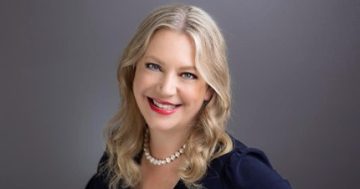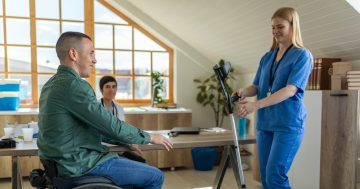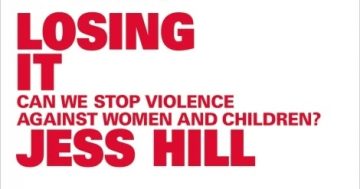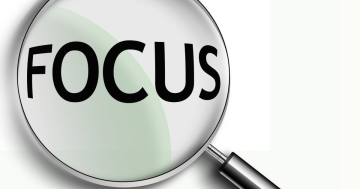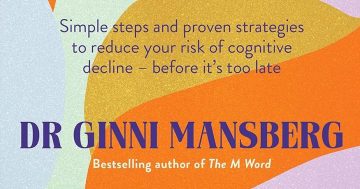Jessie Tu* discusses a few simple steps that all women can take immediately to start their journey into investing.
 What does being rich mean to you? That was a question Yahoo Finance Editor In Chief Sarah O’Carroll put to an audience in Sydney on Thursday morning.
What does being rich mean to you? That was a question Yahoo Finance Editor In Chief Sarah O’Carroll put to an audience in Sydney on Thursday morning.
But it was also one that aimed to go beyond money alone.
“There are many pillars to consider; mental, physical and social wellbeing,” she said.
With a mostly female-lined up of speakers, the breakfast event aimed to explore much more than “quick fixes” to getting rich.
Rather, it examined the link between money, purpose, meaning and wellbeing.
And it shared some great ideas for anyone looking to get started in investing, no matter how small the spare change that you’re starting with.
Any goal requires microsteps
Alex Christou, the Managing Director and Program facilitator to Arianna Huffington’s Thrive Global across Asia-Pacific, believes that being a good investor looks a lot like being a good athlete.
Many of the skills are transferrable.
“Much of the skills involved in sporting can be translated into the corporate world,” he said.
“In our research, we found that the difference between a high performer and a good performer is just mindset.
“The beliefs we hold are important. What we choose to focus on is important.”
“Focus on what you have agency over. What can you control?”
Christou spoke about the importance of sleep, disengaging from your phone once you go to bed, and setting microsteps towards your goals.
“A microstep is something that is too small to fail,” he explained.
“Like getting rid of your phone from your bedroom, because technology is getting in the way of our sleep.”
“Many of us who make New Year’s resolutions have abandoned it by the end of January.
“We create too great a leap to make in a short period of time.
“With microsteps we are more likely to meet our goals.”
Treat your money like a business
Sydney-based finance journalist Jessica Yun spoke to Kim Kiyosaki via zoom, asking her why she wrote her book, “Rich Woman: A Book on Investing for Women”, which was published 15 years ago.
Kim has been a passionate advocate for women’s financial independence for years and told Yun that when she spoke around the world to audiences, she’d always end up having many women approach her with questions.
“I would get up on stage, and I would speak to the women,” Kiyosaki said.
“It didn’t matter where I was, at the end of the talk, I was always surrounded by women.
“They had the same issues. We are not expected to know a lot about money.
“We’ve been trained to allow someone else to take care of us financially.”
The 73-year-old businesswoman shared three top tips for women: which she details in her book.
“Number one, don’t depend on someone else,” she said. “Don’t turn yourself blindly to a financial advisor. Learn how to grow your wealth.”
“Number two, anybody can do this.
“There’s this myth that women aren’t good with money. We’re not good with numbers — that’s a lie.
“I had no expertise when I started. And look at me now.”
“Finally, treat your money like it was a business.
“If women started treating their money as a business, and learn the language of money; liability, excess etc. then we’d be great at it.”
Small change can get you started
Sharon Connolly, an eToro Popular Investor, explained to audiences the ease by which she began her investment journey.
“I started off with a $20 voucher for eToro, a trading platform.
“Then I got calls from the company telling me that people were following me on the platform.
“You realise that some people are interested in what you’re doing, even if you don’t know what you’re doing.”
Connolly was soon getting 40 to 50 per cent, even 100 per cent returns. How did she do it?
“I asked myself what do I know about? What do I use? At that time, I was using Facebook so I started off with that.”
Connolly said starting is easy.
“You just set up a profile and you can be trading within the day. You can start small.
“You can add little increments. Just start. Just get going.”
Appreciate the compound
Later, Finance journalist at Yahoo, Lucy Dean, moderated a panel discussion with Chief Investment Officer at Burman Invest, Julia Lee and Managing Director of Fidelity Australia Alva Devoy.
“We have to educate women on where they’re actually starting from,” Devoy explained.
“Women retire with much less than men. We tend to be more risk-averse. We need to de-risk investment.
“Men are performance orientated. Whereas women are goal- orientated.
“We’ve got to change how we help women invest and demystify the language around investment.”
Julia Lee agreed. “The key is to get started,” she said.
“Building wealth, you’ve got this huge concept of compound.
“You can see that as you spend more time your money grows. You can make regular contributions.
“Chuck in 100 dollars a month and over 50 years, that’s worth over 1.3 million.
“Start as soon as you can. Do it regularly. The key is the amount of time you spend in investment is a powerful way to build health.”
“Decide on what to invest in: all the companies around you are on the market.
“Try to find an edge. Investment is all about doing something where you’re doing more than the next person. Look into life, and work out where all the trends are.”
Take the time machine test
Lee also has a mental strategy she uses to help her decide on what to invest.
“I try this strategy of putting myself in a time travel machine,” she explained.
“I ask myself What do I wish Julia invested in two years ago?”
“Work out how things are moving. For me, most things move in cycles.
“For example, we’re just about to travel again in the next year or so.
“Once people are confident enough, it’ll be like a coiled spring. We’ll be taking holidays.
“I think the world will be growing. Central banks will be spending money.
“They’ll be building highways, buildings, infrastructures.
“Look at those trends. Oil consumption has been down, but once travel normalises, it’ll shoot up.”
“There are some trends I haven’t done so well.
“I thought aged care would do well, more than 10 years ago — but it’s been an absolute disaster.
“That time machine helps me encapsulate more confidence.”
*Jessie Tu is a journalist with Women’s Agenda.
This article first appeared at womensagenda.com.au.



